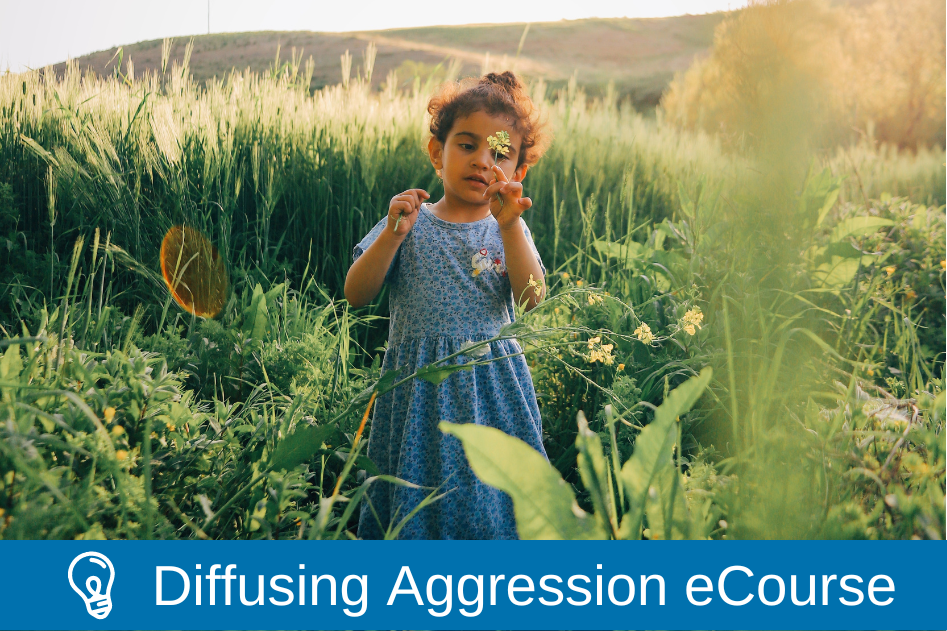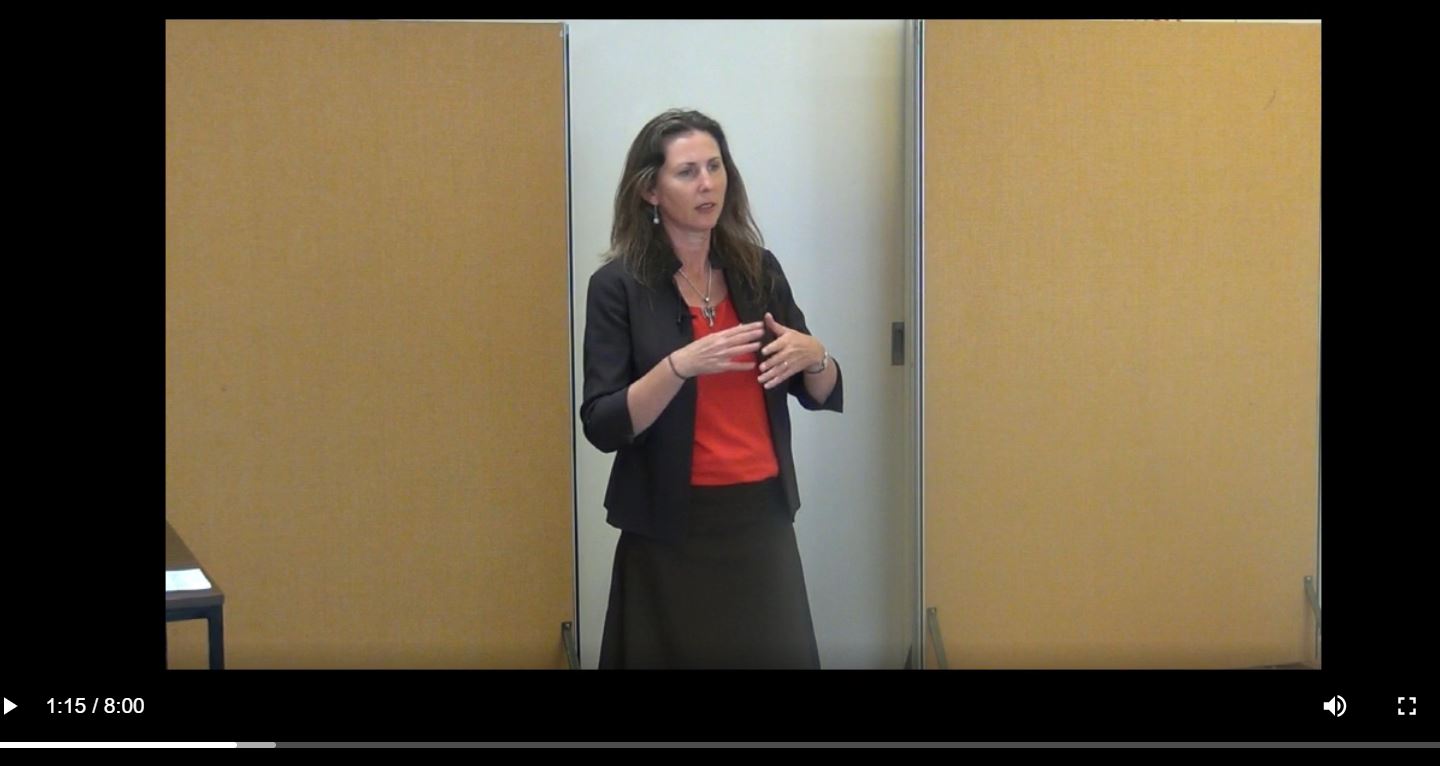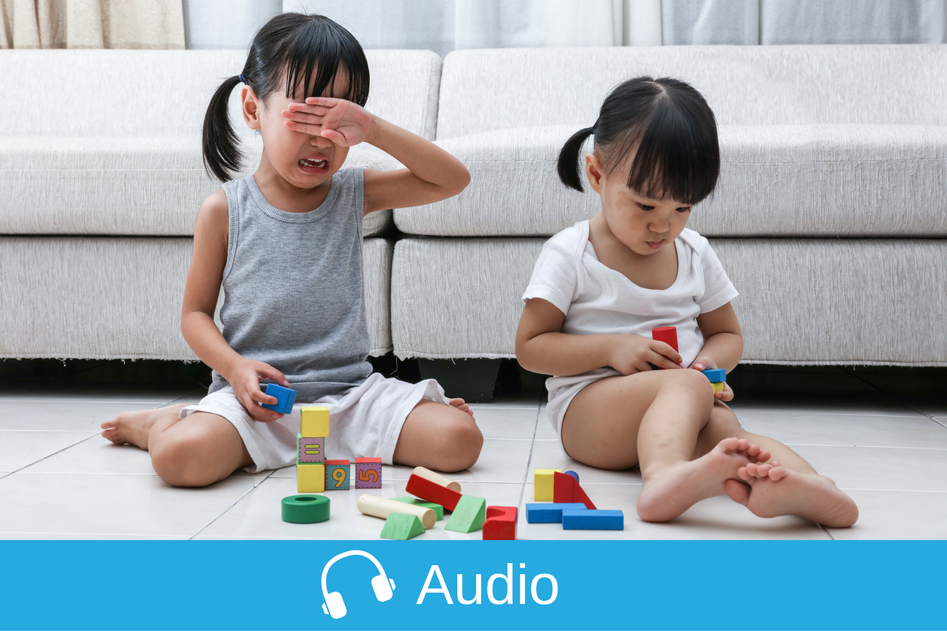
We can look back on the past from the wisdom of an adult perspective to help us evaluate the core beliefs created in childhood
Who we experience ourselves to be now, who we think we are and how we present ourselves to the world now relates not simply to our past. It relates also to the patterns of meaning-making. In other words, it’s not just what we experienced and how we were treated in childhood that forms our patterns of relating (with ourselves and with others). But it’s our meaning-making, as in what we made it mean.
Children don’t have the ability to understand complex relationship dynamics or understand what is happening inside another person. So when there are tensions in their relationship with their parent and they don’t feel loved, they may make it mean that they are not lovable. When the child feels bad, they can think that they are bad.
As children we are unable to hold perspective or complexities, for instance, “Mum loves me but can’t be caring towards me when she is overwhelmed”. We can’t change the past, but we can change in the present what we choose to now make experiences from our past mean. We can change what those experiences really meant about ourselves and about our parents or at least hold more space for other possibilities.
Examples
If your parent didn’t meet your needs for connection, warmth and emotional validation, as a child you may have internalised that this meant that your needs and feelings were not important. You may have developed core beliefs like “I’m too sensitive”… “I’m too needy”… “Nobody really cares in this world”… “It’s not safe to show my feelings”… “I’m all alone in this world”.
Now as an adult, you can look back with greater understanding and perspective. You see that even though your parent/s didn’t/wouldn’t/couldn’t meet your needs sometimes/ever, yet still your needs WERE important. Hence your needs and feelings today ARE important and valid.
Hence developing core beliefs like “My feelings are just as important and just as valid as everyone else’s feelings”. ..”What I have to say is just as important as what other people have to say”… “Even when the other person doesn’t/can’t tune in to me, I still deserve to be heard, seen and understood”… “Some people care, some people listen well, some people are truly compassionate”.
For instance, you may have experienced “I always thought I was lazy because my father told me I was lazy”. But now wonder if he really saw and appreciated your efforts. Perhaps he didn’t express that appreciation because it never occurred to him to do that.
Do you still comply with the labels projected onto you as a child?
As a child, you may have always thought your father saw you to be a lazy person. You have continued to assume he still sees you this way. But now, in exploring the core belief “I’m a failure, I never succeed” you identify the feelings that these beliefs created. You may start to wonder if he really saw and appreciated your efforts but didn’t express those appreciations because it never occurred to him to do that.
Explore how it would have felt if he had expressed those appreciations. You may start to commit to giving yourself now what you didn’t receive then. Working to affirm “I’m a hard-working person and even though there’s much more to achieve, I succeed in many ways”. Or “Even when I don’t meet my goals, I still chose to support and encourage myself”.
These perspective shifts lead to being able to change our core beliefs
Changing our core beliefs changes how we see ourselves and our relationship with others. Healthy core beliefs are necessary for us to stand tall and strong and have the courage to express ourselves in the world.
We all have the choice to enact healthy and unhealthy coping mechanisms at times of stress
Unhealthy coping mechanisms tend to stem from unhealthy core beliefs about ourselves. Just as we work to relate to the underlying feelings and needs driving our child’s behaviour, this work is about relating to the underlying feelings, core beliefs and needs driving our behaviours. Deepening our practice of healthy coping mechanisms/strategies depends on developing healthy core beliefs about ourselves.
When we’re upset, if we affirm that this stressful dynamic means that we’re failing, we’re likely to resort to unhealthy coping strategies like being defensive or comfort eating. If the same situation results in us identifying that this is triggering painful wounds of feeling overwhelmed and feeling misunderstood, but we affirm that we’re a good person experiencing painful emotions, then we’re more likely to put our hand on our heart and acknowledge and care for our painful emotions.
Trainee Zoom calls
At least one (if not two) of the trainee’s Zoom meetings during your one-year program will be dedicated to supporting trainees to better understand the questions below with the aim of identifying core beliefs. Make sure to read the emails that go out relating to times of Zoom calls to make sure you have these in your diary.
However, if you’re unable to attend one of these Zoom calls, we will, as ever post the replays and you can do the work at home in your own time. Create a diary appointment with yourself to do this work at a time when you will have the headspace to really focus on the reflection questions. Create some calm and peaceful time at home to connect with your inner world. Explore the questions below and then either email your responses to Genevieve or you might be willing to generously record your responses on video and share in our trainee’s forum. Optionally, we can create some space in one of our trainee video meetings for trainees to share some of their responses. This can be very insightful to others as well as valuable for the person sharing.
Questions for identifying and changing core beliefs
-
What are the ways that I try to meet my needs that feel controlling, rigid and filled with stress/anxiety?
For example, when I’m overwhelmed I comfort eat, I drink alcohol every night, or I stay up late and watch episodes/videos. When I’m overwhelmed by the mess, I go on a big cleaning spree. When I get worried about the future, I fixate on reading articles and watching videos about the subject I’m worried about. But as a result, don’t get to meet some of the basic needs in the family that day.
-
How does this pattern make me feel? How do these patterns/actions impact me?
Does the activity help me to genuinely reduce my stress? Or is it a short-term relief that creates other problems at the same time? Like exhaustion the next day, conflict with family members or feeling unwell from eating the wrong food? Or I’m relieved to have done a cleaning spree, but now I am guilty and stressed because I was so desperate to regain some order that I got very annoyed at my child not joining in.
Do some writing to identify some of the words you tell yourself in your mind when you enact your unhealthy coping mechanisms. These words help you identify the core beliefs that are running in your subconscious mind. Once identified you have the choice to identify them better in the future and replace them with healthy core beliefs. For instance, you binge eat/watch videos when anxious, then tell yourself “Damn it I’m going backwards instead of forwards”.
Ok, now you have a belief about yourself that needs changing. Imagine you hear a parent say this to their child. Does that help you identify that it’s disconnecting instead of helpful? That it’s discouraging instead of compassionate? Maybe you could identify these kinds of thoughts and replace them. “Oh wow I’m so disappointed I spent so much time this week doing …., it’s a sure sign that I’m really struggling.” Bring in your new belief, “When I act in ways that feel self-sabotaging, I need to reconnect with my feelings and give myself love”. Or simply replace thoughts with “Even though I feel shame, I love and care for myself”.
-
What are the ways that I look after myself and meet my needs that feel nurturing, kind and caring towards myself?
For instance, I make a bigger effort to fit in time in nature or some stretches or watch/listen to or read that which uplifts, empowers and encourages me. Perhaps committing to getting more sleep or eating more healthy food or meditation or fitting in quality time with my child/partner/friends.
-
How does this make me feel?
In what way do these patterns/actions impact me? Am I repeating the patterns I learned from my family of origin?
-
How does the feeling of anxiety/fear serve me or limit me?
What information does that anxiety/ fear give me? How do I respond to that information that comes through my mind and my body? What are my range of strategies I use to manage fear and anxiety?
-
When I use unhealthy control patterns like fixating on media or comfort eating, what do I make it mean about myself?
For instance, do I tell myself that I’m not a good enough mother/father/grandparent?
Looking back on the core beliefs you’ve identified so far, it can be helpful to ask yourself “Is this true?”. “Is it fair to accuse myself of this?” What would be a more helpful meaning to attribute to why you chose certain coping strategies?
For instance, when I fall back into being overly controlling/comfort eating/being reactive towards my child, this likely means that I’m struggling to cope at the moment. That these are deep old patterns and it’s taking a lot of work for me to change.
-
When I interact with someone who is operating from fear, control and anxiety, how does it impact me?
Do I manage to settle calm myself or otherwise meet my emotional needs to come back to peace? Or do I tend to shut down those feelings and disconnect from them? Do I come back later to notice if some of those feelings are still being held as stress in my mind and body?
-
Attempting to summarise your main patterns.
When something difficult/stressful/triggering happens, what are my main patterns that tend to kick in? What happens in my relationship with myself at those times? What happens in my relationship with others at these times?
Related to creating healthy boundaries, you might also like to read Genevieve’s article: The importance of creating healthy boundaries in the family.
- BOUNDARIES: When I feel that my boundaries are at risk of being crossed, what happens? Am I open and vulnerable or do I harden up and become overly staunch? Would it sometimes benefit me to be more open and vulnerable? Do I tend to harden up too much? How can I get a balance between staying open and connected emotionally and holding boundaries?
- When I can manage to maintain the connection with myself and others in the face of threat/anxiety/stress? What is the pattern or core belief that helps me to achieve this?
- What core beliefs do I need to develop/strengthen to be better able to maintain care and connection with myself when stressed/facing challenges?
- When I get upset/triggered/stirred up and I consequently behave in these ways, what do I make that mean about myself?
- Does my stress response tend to be more fight/flight or freeze?
- What do I make it mean about the person whose actions/lack of action upset me?
One of our PP Instructor trainees has shared this exercise that Gabor Maté offers to help people strengthen their boundaries:
1. Where this week did I not say no or have difficulty saying no?2. What was the impact on me of not saying no?3. What was the belief behind my ability to say no (hidden belief)?4. Where did I learn or acquire this belief?5. What am I not saying yes to?6. Who would I be without these beliefs?Gabor Maté recommends doing this once a week.This is very similar to the process of doing The Work of Byron Katie. Just a bit more focused on saying no!
Your Wounds and Your Gifts: two sides of one coin
Click here to access the second Core Beliefs set of questions for trainees to work through







Perfect timing for me to be asking these questions and sitting with my responses. There are so many patterns that I thought I was aware of. There are so many layers to really identifying these and seeing the responses tied up in my blueprint and the feelings behind my needs and what my behavior is, to try and get my needs meet, by myself and others. This process is ongoing for me, it feels very good to be actioning steps to support changing this very ingrained pattern. So many layers of understanding and perceptional awareness to be able to keep paving a way forward. I went back to the feelings and needs charts to have look at how that relates to me now, and see that my patterns can relate to the chart, with more adult versions of the child’s unmet needs. I have joked about some of the ways that I remedy myself ( eating chocolate in the midst of a challenging situation) answering these questions brings to light just how many seemingly habitual tendencies are covering up some underlying patterns, that would be good to bring self-compassion and heartfelt awareness to in the moment!
Hi Seonaid, I so appreciate you sharing your insights relating to working on the patterns. Yes they go so deep and there are so many layers. Yet always another layer of healing, of bringing the subconscious into the conscious, shining light on these patterns. And yes great idea to pull out the Feelings and Needs chart, and yes so relevant to us humans at any age or stage of life! And yes the needs can be met differently but not that different in many ways.
I definitely need to do some work to identify the core beliefs that are running in my subconscious mind. I already found some, thanks to personal therapy, and I am learning to replace them with healthy core beliefs. I feel it is hard to do this work alone. At least personally I admire who can do that just by journaling or listening to himself. I feel I need the process of a therapeutic setting.
I also need to work more on boundaries. I am now at a crossing point where I realize this point has cost me a lot, especially in my professional situation. I wonder what it cost as a parent.
I have quite well-behaved children but now with adolescence, I am starting to receive strong rejection at times from my older son. It’s hard to navigate between the active listing to those strong feelings and my strong need to get respect and validation.